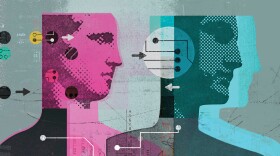What is meant by the term "placebo effect"? What exactly is being described, and how is it brought about? And is this term a medical reality? Does it actually -- that is, scientifically -- exist? On this edition of ST Medical Monday, we hear from journalist Erik Vance, whose writing has appeared in Harper’s, The New York Times, Scientific American, and other publications. His new book on this topic is "Suggestible You: The Curious Science of Your Brain's Ability to Deceive, Transform, and Heal," and he spoke with ST/MM host John Schumann about it last week -- before a live audience; at a Book Smart Tulsa event -- on the campus of OU-Tulsa. As was noted of this book by Kirkus Reviews: "The human mind is capable of astonishing feats, but does it hold the power to alleviate pain, or even cure disease, simply through suggestibility? The placebo effect, in which an inert substance relieves symptoms simply because the patient thinks it’s an active pill, is among the most fascinating subjects in medicine. The importance of the placebo effect is so integral to clinical trials that no pharmaceutical study is permitted unless it compares the results of medicated subjects with those of a placebo group. In his compelling book, Discover contributing editor Vance...chronicles his travels around the world and through history to detail the unexpected ways our lives and outlooks are affected by similar forms of suggestibility. Raised as a Christian Scientist, the author grew up in a community that believed God's healing power alone could cure any ailment. In an enthralling anecdote, he relives his recovery from Legionnaires' disease as a toddler and how the turning point of his near-death experience was his mother's abandonment of fear and trust in God. This is not to say that Vance is advocating religion in lieu of antibiotics -- far from it -- but in this and many other first-person narratives, he challenges traditional views on the effect of expectation, or suggestibility, on the physical body. He shows that modern neuroscience supports this line of inquiry. Brain chemistry has long been known to affect mood, regulate pain, and even affect gastrointestinal health, and cutting-edge techniques to map brain activity provide new insight. As the author frequently points out, if scientists are able to apply clinical data to the age-old mind-body problem, it may be possible to personalize medicine to an extent never before dreamed of. [This book offers] an eye-opening exploration of the intersection between philosophy and science and a fascinating peek into our innermost selves."
"Suggestible You: The Curious Science of Your Brain's Ability to Deceive, Transform, and Heal"








